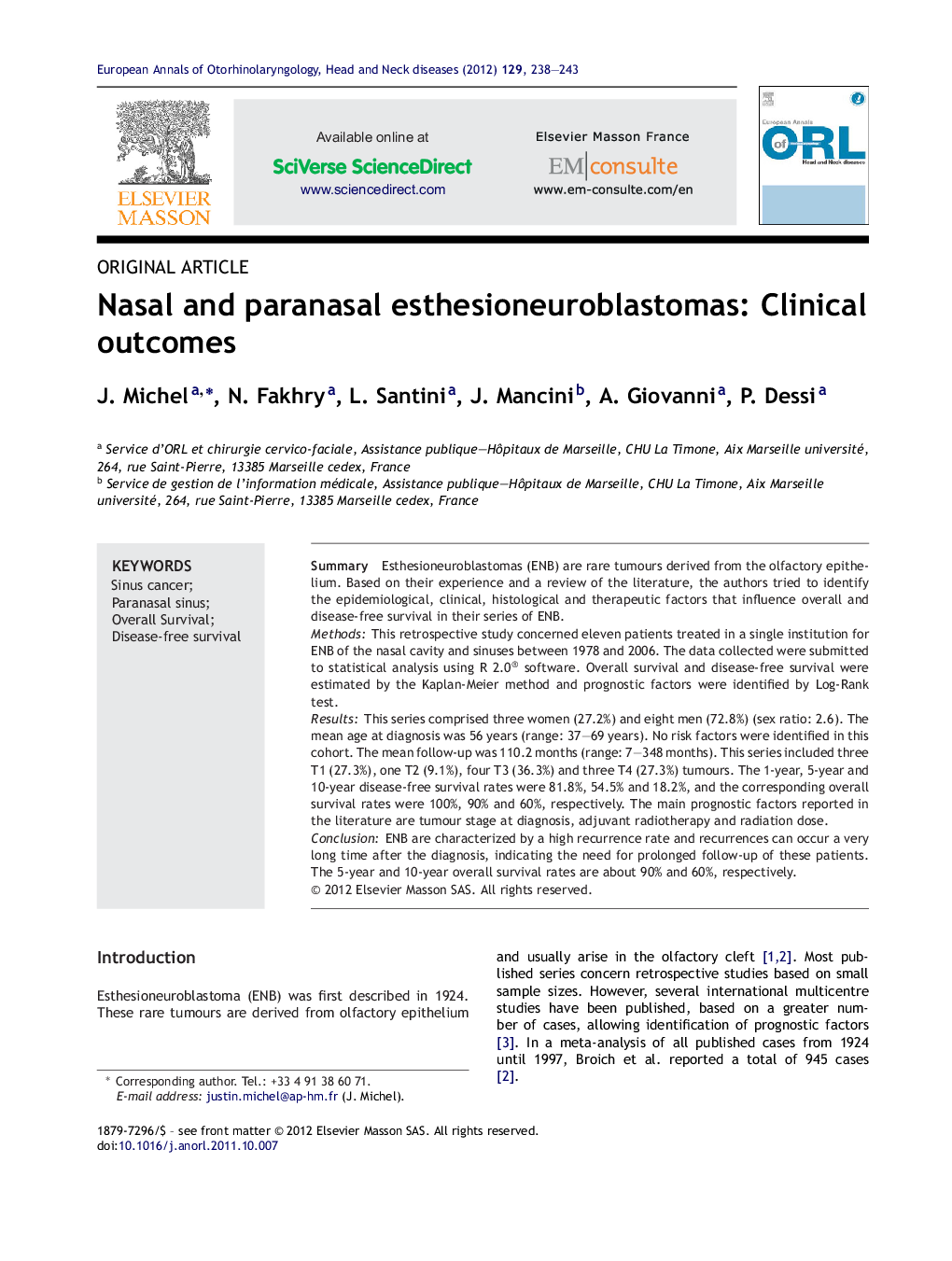| کد مقاله | کد نشریه | سال انتشار | مقاله انگلیسی | نسخه تمام متن |
|---|---|---|---|---|
| 4110182 | 1605740 | 2012 | 6 صفحه PDF | دانلود رایگان |

SummaryEsthesioneuroblastomas (ENB) are rare tumours derived from the olfactory epithelium. Based on their experience and a review of the literature, the authors tried to identify the epidemiological, clinical, histological and therapeutic factors that influence overall and disease-free survival in their series of ENB.MethodsThis retrospective study concerned eleven patients treated in a single institution for ENB of the nasal cavity and sinuses between 1978 and 2006. The data collected were submitted to statistical analysis using R 2.0® software. Overall survival and disease-free survival were estimated by the Kaplan-Meier method and prognostic factors were identified by Log-Rank test.ResultsThis series comprised three women (27.2%) and eight men (72.8%) (sex ratio: 2.6). The mean age at diagnosis was 56 years (range: 37–69 years). No risk factors were identified in this cohort. The mean follow-up was 110.2 months (range: 7–348 months). This series included three T1 (27.3%), one T2 (9.1%), four T3 (36.3%) and three T4 (27.3%) tumours. The 1-year, 5-year and 10-year disease-free survival rates were 81.8%, 54.5% and 18.2%, and the corresponding overall survival rates were 100%, 90% and 60%, respectively. The main prognostic factors reported in the literature are tumour stage at diagnosis, adjuvant radiotherapy and radiation dose.ConclusionENB are characterized by a high recurrence rate and recurrences can occur a very long time after the diagnosis, indicating the need for prolonged follow-up of these patients. The 5-year and 10-year overall survival rates are about 90% and 60%, respectively.
Journal: European Annals of Otorhinolaryngology, Head and Neck Diseases - Volume 129, Issue 5, October 2012, Pages 238–243